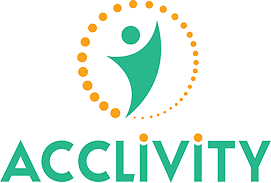Welcome to The Acclivity Podcast, where we talk about what it really takes to thrive in your academic career and beyond. I am Dr. Loren M. Hill—knowledge coach, academic career strategist, and your guide for building a career that aligns with your expertise and your values.
Welcome to Season 5. I am deeply grateful to listeners—whether you’ve been here since Season 1 or this is your first listen. Starting this podcast felt like a bold experience. And look—here we are in Season 5. As I reflect on the journey this podcast has taken and the community it’s built, I’m reminded that every season of growth in our careers is shaped by turning points. The kinds that don’t always make it into your CV. Frankly, each of those moments has taught me something about success that no handbook, mentor, coach, or team member really prepared me for.
Honestly, there are some lessons from those chapters that I wish someone had told me sooner. So I want to take a moment to share three pivotal crossroads in my own academic life—not the highlight reel, if you will, but the moments that stretched me, challenged me, and ultimately clarified what kind of scholar, leader, and coach I wanted to become.
Let me share those with you now, sort of rapid-fire style, so that you can take them with you into your own journey—and hopefully, you’ll find them helpful.
Let’s start with the first one: my promotion from assistant to associate. You all may remember that my career in the academy was—what one of my very first guests, Dr. Patricia Arredondo, talked about—a nonlinear path. I started as adjunct and then moved into the academy in a more full-time position. I was also a director of a research institute. And so, some of those twists and turns left me a bit reeling. But eventually, when I did put forward my portfolio for promotion from assistant to associate, I got the letter. I felt validation… but I really felt exhausted.
Nobody told me about the politics, the layering, the loneliness—all of that stuff the process could take you through. But what I did learn from that experience was to document everything—not for defensiveness, but really for clarity. That’s one of the things I really try to impart on people: document everything. We’re going to come back to that in a second.
The next area that was a crossroads in my career was stepping into a leadership position and becoming a chair. Leadership changed me. I really believe that when you’re in certain positions—particularly leadership—it brings out more of who you are. And sometimes we need support in learning how to do new things, especially leadership skills.
One of the things I really had to learn was how to say no—say no with confidence—and be able to negotiate in those hard moments and sit in that discomfort. For me, being a woman, a woman of color, and considering some of the cultural aspects of my intersectionality, I tend to say yes—even at my own expense. So learning how to say no, and then finding space to talk about other options, was essential.
I was supported in that—by taking different trainings, talking to people who had “been there, done that,” and finding out who my allies were. And I don’t just mean peer allies—I mean allies who genuinely wanted to see me be successful in my administrative position. Nobody really tells you how lonely it can be. Even though you have a seat at the leadership table, it can still be a lonely seat.
The next crossroad in my career was leaving a university. Leaving wasn’t easy, but staying would have cost me a lot more. People saw the move, but they didn’t see the nights where I questioned myself. Am I doing the right thing? Imposter syndrome showed up. What’s going to happen to me if I leave?
It was a leap. And dare I say, a leap of faith. It ended up being a leap not just into the unknown, but into the realm of possibility. We’ll come back to that in a moment.
Now let’s dive into things nobody told me—but I wish someone had.
Keep your receipts. You’ve got to get a brag file. Remember when I talked about documentation? Well, let me tell you—documentation is everything. Sometimes it’s the only thing. People are busy. People forget. Even we forget what we’ve done, especially when we’re used to working, working, working, and just getting the job done. We often forget all the good work we’ve done.
Even if you’re in a supportive environment—whether that’s colleagues or administrators—nobody knows the full extent of your impact except for you. People might have an idea of some one-off accomplishments or things you’ve done here or there, but the total package? You’re the best person to understand and communicate that. So keep a digital folder, a notebook, screenshots, emails—just keep data. Keep your receipts.
Next: neutrality is a myth in leadership. Stand for something. Now, you may have a neutral presentation while you’re weighing a decision—but please believe me, you’ve got to make a decision.
And the decisions you make in your leadership position should be grounded in something. Leadership without values is just management. And management without vision is just maintenance. People didn’t need me to be neutral. They needed me to be fair, clear, and courageous. And I think I did a pretty good job on all of those.
There were some things I had to learn about leadership skills, but once I was able to get comfortable, it became easier to make decisions. Don’t get me wrong—some were hard—but some I was real clear about.
Next: leaving doesn’t erase your legacy—it expands it. Your legacy isn’t tied to a building, a campus, or a title. Your legacy travels with you in everyday relationships. Every student, every colleague, every staff member, every person you touch. I’d even go so far as to say family members of students or colleagues, too.
So think about expansion—we’ll come back to that as well.
Your network is your career capital. Cultivate it as much as possible. Remember, networks are relationships. Degrees will get you in the door. Relationships will keep you in the room. And those relationships will also get you into other rooms.
So to the extent you can, with care, be generous with your knowledge. It’s your real currency. Have those reciprocal relationships. And protect yourself as well.
This leads me to the next point: boundaries are leadership tools, not personal preferences. Now, they may be informed by personal preferences, but you need to have boundaries. For someone like me, with all my intersectionalities, boundaries can sometimes be difficult. But let me just tell you—boundaries aren’t selfish, and they’re not optional. They are strategies.
Boundaries communicate clarity about what matters most—to you, your team, and your mission.
All of these things go together. These are lessons I’ve learned. These are things I’ve worked on with people. And incorporating them—at various times—will really help propel you forward.
So now, what?
Even with all of those lessons learned, the world of higher education is changing faster than ever. I always talk about the changing landscape of higher ed, and I use that analogy intentionally. There are some parts of the landscape that change quickly—suddenly, dramatically. A few years ago, we had some serious rain here in Southern California. Just two streets over from me, there were mudslides. That happened in an instant.
But someone who understands landscapes will tell you that those kinds of events—mudslides, for example—don’t just happen out of nowhere. They’re the result of a longer buildup. More rain than usual, fewer plants holding the soil, shifts in the environment. It’s all connected. The same is true for higher ed. Sometimes, things seem to change overnight, but really, those changes have been building under the surface for a long time.
Case in point: the pandemic. We’re on the other side of it now, but when it hit, institutions had to pivot quickly. Some were able to survive. But not many thrived. And we’re still unpacking what all of that means. What actually changed? What’s the long-term impact? Some effects were immediate, sure. But others—we won’t even see the full picture for years to come.
So what does that mean for you?
It means your ability to thrive—both professionally and personally—requires adaptability, clarity, and courage. It means being clear about your values, documenting your impact, cultivating strong networks, and leading with boundaries. It means choosing legacy over longevity, and recognizing that you’re not just surviving in this space. You have the power to shape it.
And I want to talk a little about where I believe academic careers are headed and what I’m coaching my clients to prepare for right now.
Visibility versus perfection. There was a time when the goal was to become the perfect academician. But perfection isn’t real, and waiting for it is a trap. Instead, raise your visibility. Share your work while it’s in progress. Be safe, but don’t hide. You’d be surprised what happens when you have conversations about the ideas you’re developing—whether that’s across departments, across institutions, or across the world. The goal is to be seen. To be findable. The days of having your head down in the lab and hoping someone notices—that’s not enough anymore.
This brings me to the next point: storytelling versus solo technical expertise. Translate your expertise into real stories. People remember the why, not just the what. I’ve always been drawn to the story behind the data. Mixed-methods research is powerful for a reason—it gives us the numbers and the narrative. Your career should do the same. Your story doesn’t have to be huge or dramatic, but it should be yours. So start talking about yourself, right now.
Next: portfolio careers versus the single-track tenure dream. Hybrid careers are the future—and honestly, they’ve always been a part of academia. Think of the scholar-practitioner model. What makes you relevant is the blend: your academic self plus your industry self. Teaching, consulting, writing, speaking—it’s the mix that sets you apart and makes you more marketable.
And finally: institutions will change. If nothing else is certain, that is. So your clarity must be stronger than their policies. Let me say that again: your clarity must be stronger than their policies. Know who you are beyond your title. Get clear on what you offer that no policy can take away. That’s where your value lies.
So my final thoughts on this whole “lessons learned” theme—what I wish someone had told me, and what I’m thinking about for the future?
Be visible.
Tell your story.
Build a portfolio life.
Lead with clarity.
People come to The Acclivity for strategy, but they stay for clarity. We help people name their value, navigate career pivots, and build plans that align with who they are becoming.
I hope this was helpful to you. And if you want to work with me or my team, visit theacclivity.com—we’d love to hear from you. Beyond that, I’d love to know: What bold move is your future self waiting for you to make?
DM me. Email me. Tell me what’s going on. And if you’re ready for a guide, I’m ready to walk alongside you.
Here’s to Season 5—and here’s to your boldest chapter yet.

